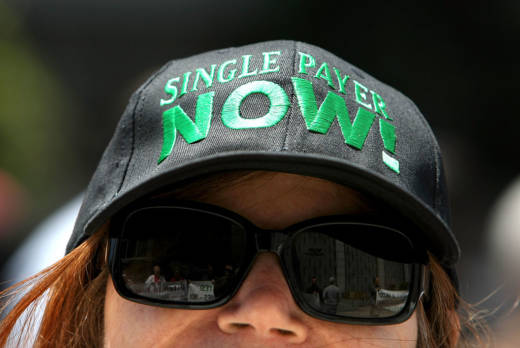It would cost the state of California an estimated $400 billion per year to cover all of its 39 million residents, according to a staff analysis by the state's Senate Appropriation Committee. That's more than twice the state's total annual budget of $180 billion.
But the main legislative advocate for single-payer, Senator Ricardo Lara (D-Bell Gardens), explained the state could get access to half of that amount, $200 billion, by shifting over what it already spends on Medicare, Medi-Cal and other state-run health services. That assumes the federal government would agree to let California re-route federal funds in that way.
"The fiscal estimates are subject to enormous uncertainty," said Nick Louizos, vice president of legislative affairs for the California Association of Health Plans. "If a combination of assumptions don't come through, this could be even more expensive than we even think."
To raise the other $200 billion, the state could implement a 15 percent payroll tax, according to the analysis, which was released Monday during a Senate Appropriations Committee in Sacramento. It's unclear how that tax might be split between the employer and the employee.
"Given this picture of increasing costs, health care inefficiency, and the uncertainty created by Republicans in Congress, it is critical that California chart our own path," said Lara at the committee hearing.
